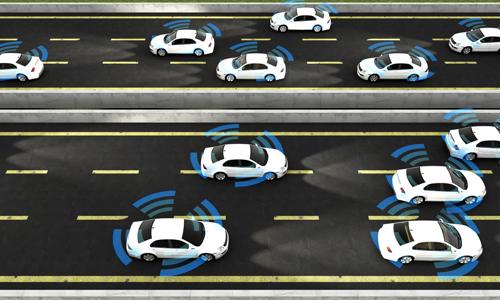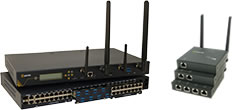
IoT poised to transform insurance industry
By Max BurkhalterJuly 13, 2017
Businesses worldwide are expected to invest roughly $964 billion in Internet of Things initiatives this year, expanding the total number of connected enterprise devices to more than 3 billion, while setting up the systems needed to take advantage of the 5.2 billion consumer-grade IoT fixtures in service, according to research from Gartner. Surprisingly, insurance firms may be among these investors. Why? The proliferation of web-enabled items has created myriad new data flows that come can come in handy in risk assessment scenarios.
According to the global consulting group McKinsey and Company, insurers are likely to see benefits from IoT technology in three key arenas: the car, the home and the hospital.
IoT and automotive insurance
Insurance providers with automotive policy options have long used driver and vehicle records to determine premiums, TechTarget reported. While this paper-based approach has generally proven effective, recent advances in IoT technology now offer these firms the opportunity to collect more accurate data on driver habits.
Automotive IoT trackers called telematics devices hook into vehicle computer systems and collect data during operation, according to U.S. News and World report. These connected fixtures collect key metrics such as vehicle speed, distance driven and total driving time. They then beam this data back to the insurance provider in real time.
A significant number of insurance companies offer opt-in telematics programs, including big names such as Allstate and Progressive. Why are these providers embracing this IoT use case? For one, they can benefit the customer, opening the door to usage-based insurance that only switches on when vehicles are in motion.
An estimated 50 million U.S. drivers will maintain UBI policies within three years, according to research from Business Insider. Secondly, telematics devices reduce the likelihood of fraudulent claims, insurers can look to unbiased data when evaluating claims, as opposed to written statements or unreliable witness accounts.
Of course, these devices are only the beginning. Another piece of IoT technology has the potential to truly transform the car insurance space: the driverless car. Analysts at McKinsey and Company believe these vehicles could reduce traffic accidents by 90 percent. This would force insurance firms to change the way they address risk on the road, as it could potentially disappear altogether. This scenario may seem fantastical but regulators have already seen glimpses.
The introduction of automatic braking systems has reduced rear-end crashes by 40 percent, the Insurance Institute for Highway Safety found. The group also discovered that front-end warning systems have cut down on this figure by 23 percent. These systems, along with fine-tuned autopilot features, are likely to dominate American roadways in the near future and auto insurance providers will be forced to adjust to his new IoT-infused reality.
"Analysts at McKinsey and Company believe driverless cars could reduce traffic accidents by 90 percent."
IoT and home insurance
Smart home technology has generated considerable buzz in recent years, as innovative IoT devices such as Amazon Alexa, Phillips Hue and Next find firmer footing in the marketplace. However, adoption rates for this technology are rather low at the moment, according to Gartner.
An estimated 10 percent of households across the U.S., the U.K. and Australia currently use smart home devices. Why? These fixtures are considered novelties among everyday homeowners - unnecessary gadgets that add little to the everyday living experience. That said, these seemingly insignificant features hold considerable potential and certainly deserve the attention of home insurance providers.
While advertisement-ready smart home devices enrich the home, other models actually make it easier and less expensive to manage, Business Insider reported. For instance, smart utility sensors can monitor gas, energy and water consumption, or notify homeowners when key infrastructure has failed.
This capability alone affects how insurance companies handle homeowner policies. In fact, forward-thinking firms already offer premium reductions to individuals who install such IoT devices, as they reduce the likelihood of claim-worthy events.
Of course, as this technology improves, insurance providers are likely to experience further change, as the home, like the road, becomes more predictable and safer.
IoT and health insurance
The average American pays roughly $9,900 per year in health insurance costs, according to research from the Centers For Medicare and Medicaid Services. This spend has increased significantly in recent years to regulatory changes and shifts in the health insurance market.
At the same time, health care providers have embraced IoT technology. Hospitals and clinics now employ connected clinical tools in an effort to better serve patients and reduce costs through data-backed methodologies. More importantly, individuals are doing the same, leveraging IoT devices to take control of their lifestyles and bring about better care outcomes. Wearable health monitors and similar items are ubiquitous, TechCrunch reported.
This ongoing sea change has had a profound affect on insurance providers, as policy holders strive to live healthier lives and focus on preventive care rather than reactive treatment.
As the insurance industry continues to deal with the development of IoT technology, Perle will be there to lend support, providing key connective fixtures such as console servers and media converters. Connect with us today to learn more about our work in the insurance space.



